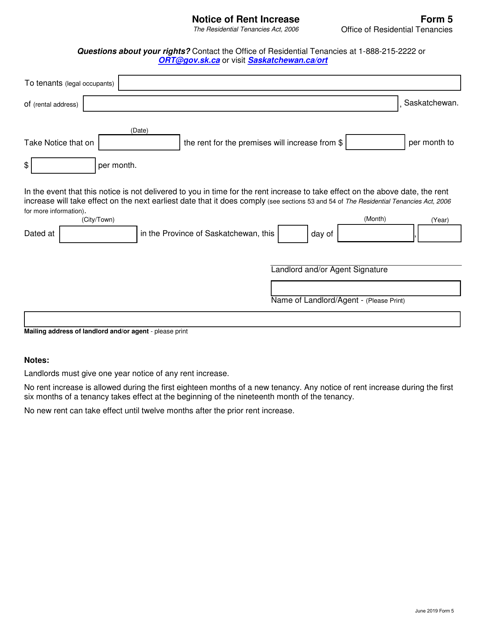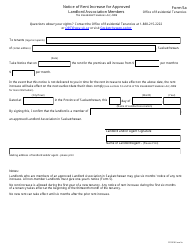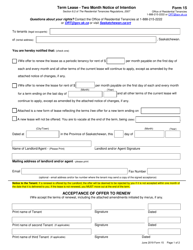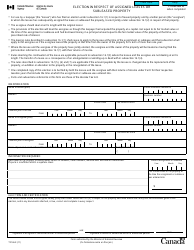Form 5 Notice of Rent Increase - Saskatchewan, Canada
Form 5 Notice of Rent Increase in Saskatchewan, Canada is used by landlords to officially notify tenants of an increase in the rent amount.
In Saskatchewan, Canada, the landlord is responsible for filing the Form 5 Notice of Rent Increase.
FAQ
Q: What is Form 5 Notice of Rent Increase?
A: Form 5 Notice of Rent Increase is a document used in Saskatchewan, Canada, by landlords to officially inform tenants of an upcoming rent increase.
Q: When should a landlord use Form 5 Notice of Rent Increase?
A: A landlord should use Form 5 Notice of Rent Increase when they plan to increase the rent for a residential tenancy in Saskatchewan, Canada.
Q: How much notice is required to give to tenants before increasing the rent?
A: In Saskatchewan, landlords are required to provide tenants with at least three months' written notice before the effective date of the rent increase.
Q: Is there a limit on how much the rent can be increased?
A: Yes, in Saskatchewan, there are guidelines set by the government regarding the maximum allowable rent increases. Landlords must comply with these guidelines when increasing the rent.
Q: Can tenants dispute a rent increase?
A: Yes, tenants have the right to dispute a rent increase if they believe it is excessive or unfair. They can contact the Office of Residential Tenancies for assistance in resolving the dispute.
Q: Can landlords increase the rent anytime they want?
A: No, landlords cannot increase the rent anytime they want. They must follow the rules and regulations set by the Residential Tenancies Act in Saskatchewan.
Q: What should a landlord do if a tenant refuses to pay the increased rent?
A: If a tenant refuses to pay the increased rent, the landlord should follow the proper legal procedures outlined in the Residential Tenancies Act to resolve the issue.
Q: Are there any exceptions to the rent increase rules?
A: Yes, there may be exceptions to the rent increase rules for certain types of rental units, such as subsidized housing or units in care homes. It is advisable to consult the Residential Tenancies Act or seek legal advice for specific circumstances.




